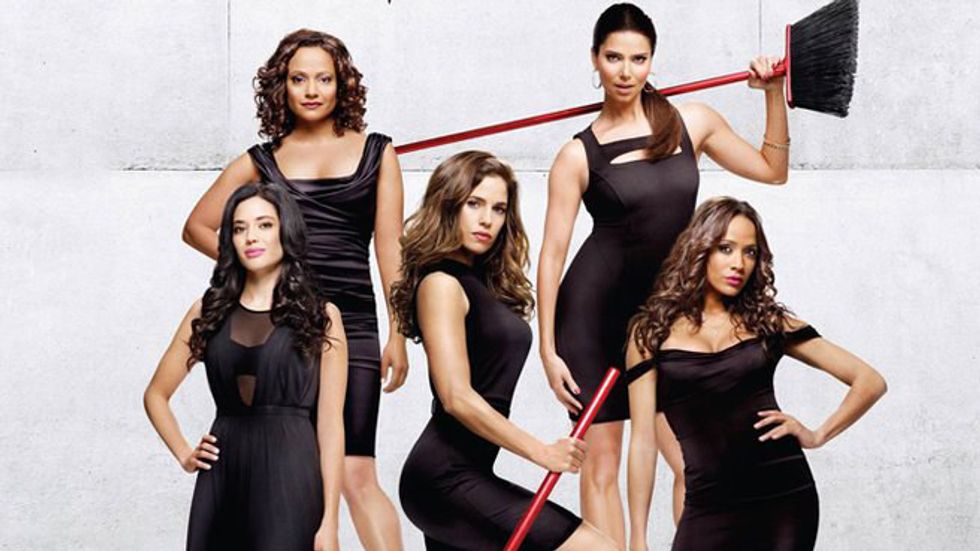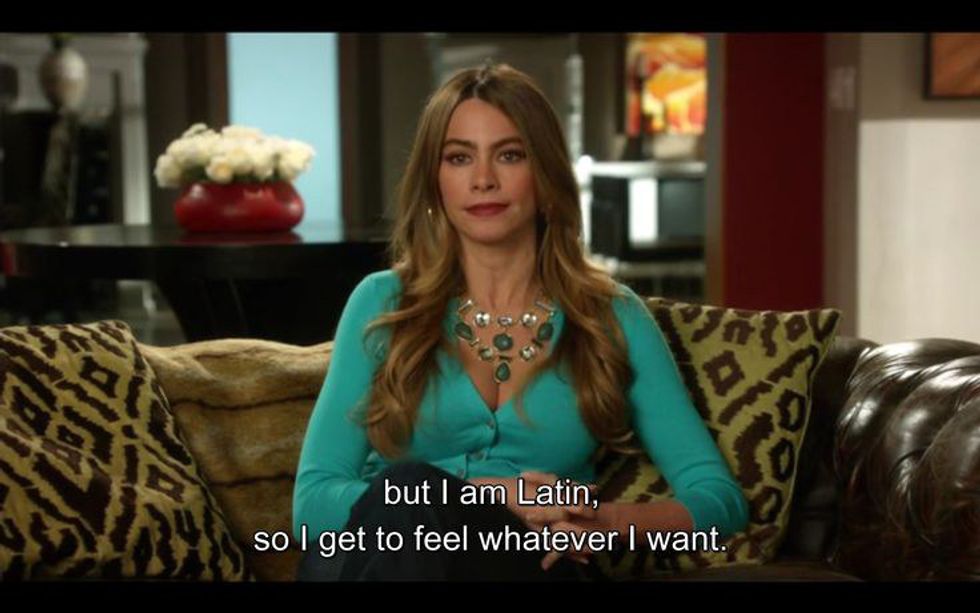Sassy. Spicy. Sexy. An alliterate list of palabras to encapsulate the timbre in which Latinas are portrayed in popular culture. And you’ve seen them all before.
Voluptuous, hot-headed and non-English speaking. Touchy, loving, demanding. They often fulfill roles of uneducated or low class workers and manage to do so without sacrificing their beauty and elegance. I’ve never seen a hotel maid look so … infallible. Which could be a lighter term for seductive.
As we all need not be reminded, stereotypes as such persist for every race. As are for Asians. Pasta is for Italians. You've known this.
But, as others sensitive to racial differences would critique and have critiqued for years prior to this piece, consistently depicting Hispanic women in such degrading light translates into divides within our very real society.
Interestingly enough, but not surprisingly, the stereotype also permeates the male world. Often represented as migrant workers with little or no education, Latino men are not immune to the ravages of racial division.
As Nicole Akoukou Thompson writes in Latin Post, "[M]ore often, Latinos portray the negative roles: the criminals, gardeners, maids and dropouts. These negative portrayals, while they obviously aren't representative of the entire community, are first impressions to sheltered audience members who aren't personally familiar with Latinos, and they are more likely to take these misrepresentations to heart. These harmless characters can be potentially detrimental, engaging other's anti-Latino views."
A popular prototype of the Latina woman is "Modern Family"'s Gloria, the fierce, sexy and (occasionally) ditsy housewife.
In the show, she often recounts (through broken and adorably accented English) stories of her family, who comes from a poor barrio in Colombia. Much of the show's humor in which she is involved incorporates racial differences and cultural contrast. And she is the only Latina on the show, meaning, as Nicole Thompson pointed out, those with little to no exposure to Latin American cultures are at greater liberty to make sweeping generalizations.
Do you really get the best of both worlds?
Partially because my skin is so light, people receiving my “I’m half-Honduran!” response to their “What ethnicity are you? You look French,” visibly display expressions of astonishment. “You couldn’t be … your skin is so fair!” Hondurans can be blonde. “Wait, really? I thought your mom was Portuguese.” Spanish and European Portuguese are vastly different languages, which should make sense because Honduras and Portugal aren’t even on the same continent.
Aside from my questionable complexion, I experience the biggest difference between my white and Latina halves when I apply for scholarships, internships and certainly when I applied to colleges. I know very well that if I check the "Hispanic" box in the racial information section of applications, my chances of being accepted increase drastically. This truth obviously speaks loudly about our flawed system affirmative action.
But I want to speak out against the wide eyes of those reacting to the fresh knowledge that someone who was on the forensics team, someone who lived in Portugal during their childhood and someone who isn't equipped with a bulbous behind or a hot temper could be a Latina.
I don't have an accent. I plan to attend law school. I am not ashamed of my race, but I am ashamed of the culture I live in, which looks down on an entire ethnicity because of poor portrayal in media sources.
























